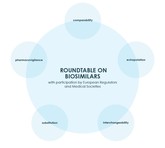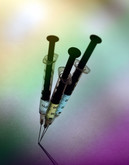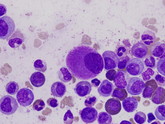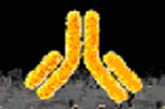Biosimilars
EMA recommends approval of bevacizumab biosimilar Equidacent
The European Medicines Agency’s (EMA) Committee for Medicinal Products for Human Use (CHMP) announced on 23 July 2020 that it had recommended granting of marketing authorization for the bevacizumab biosimilar Equidacent, which is produced by Centus Biotherapeutics, a joint venture between AstraZeneca and Fujifilm Kyowa Kirin Biologics
Clinical trials for trastuzumab biosimilars
Roche’s originator trastuzumab biological (Herceptin) was approved by the US Food and Drug Administration (FDA) in September 1998 and by the European Medicines Agency (EMA) in August 2000 [1]. The patents on Herceptin expired in Europe in July 2014 and in the US in June 2019 [1]. This has led to biosimilars of trastuzumab being developed.
Sustainable biosimilar policies in Europe
A review of approaches to biosimilar policy in Europe [1] highlights key principles for a sustainable biosimilar market, including supporting innovation and allowing for multiple suppliers.
EC approval for Sanofi’s insulin aspart biosimilar
The European Commission (EC) has issued marketing authorization for Sanofi’s insulin aspart biosimilar, which references Novo Nordisk’s product NovoLog and is used to treat type 1 and 2 diabetes.
Biosimilar infliximab reduces medication costs by two thirds in Finland
A study of 54 people with inflammatory bowel disease (IBD) in Finland showed that switching to biosimilar infliximab has no significant impact on health-related quality of life or disease activity, while reducing costs by two thirds [1].
Trastuzumab biosimilar Kanjinti is stable over extended storage periods
An investigation of the quality and in-use stability of diluted trastuzumab biosimilar Kanjinti (also known as ABP 980) versus the reference trastuzumab demonstrated no clinically meaningful differences in stability and activity over extended storage periods, according to Crampton et al. [1].
EMA approves bevacizumab and teriparatide biosimilars
The European Medicines Agency’s (EMA) Committee for Medicinal Products for Human Use (CHMP) announced on 26 June 2020 that it had recommended granting marketing authorization for the bevacizumab biosimilar Aybintio and for the teriparatide biosimilars Livogiva and Qutavina.
FDA approves pegfilgrastim biosimilar Nyvepria
Pharma giant Pfizer announced on 11 June 2020 that it had received approval from the US Food and Drug Administration (FDA) for its pegfilgrastim biosimilar Nyvepria (HSP-130).
Biosimilar pipelines for Korean firms looking healthy
Korean companies are becoming more and important both in the country but also worldwide when it comes to developing biosimilars.
FDA approves Mylan’s adalimumab biosimilar Hulio
The US Food and Drug Administration (FDA) has approved Mylan/Fujifilm’s adalimumab biosimilar Hulio (adalimumab-fkjp) on 7 July 2020. The product is the sixth adalimumab biosimilar to be approved by FDA and is manufactured by Japan-based Fujifilm Kyowa Kirin Biologics.













